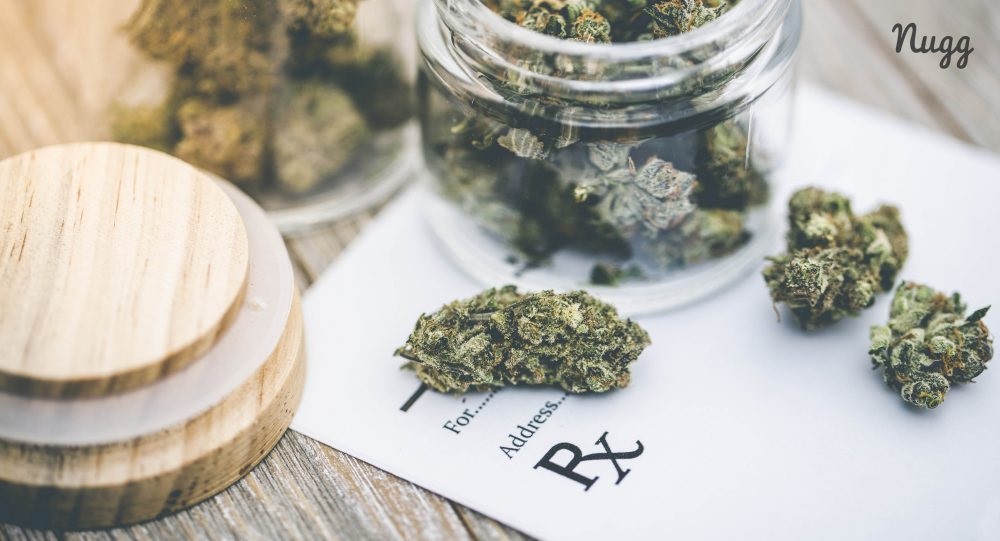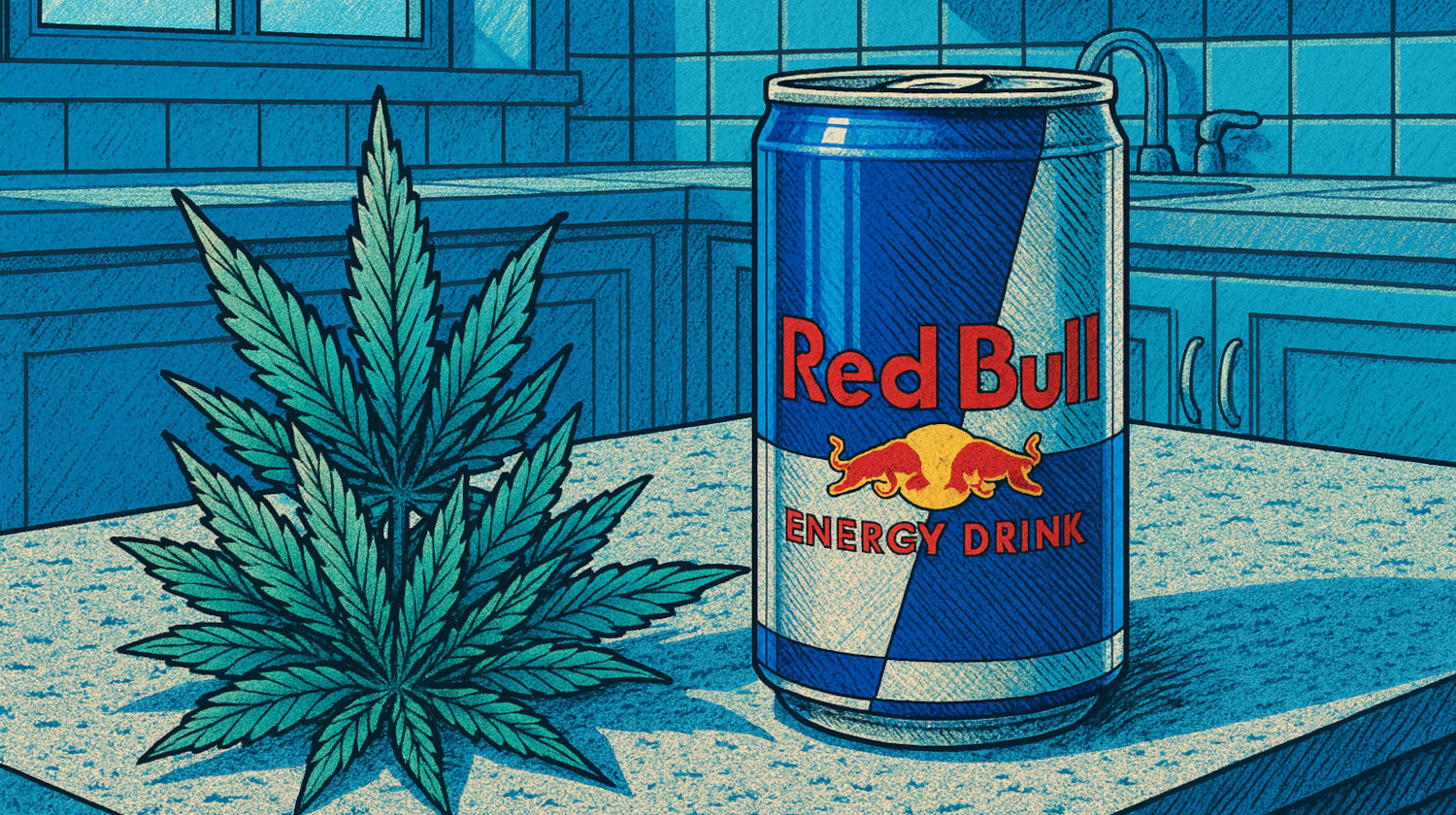Chest pain is a general description of discomfort between the neck and stomach. It can range from dull and mild to severe, which is usually a sign of a deeper medical issue. It is the second most common reason people visit the emergency room and accounts for over 8 million visits yearly.
A variety of different factors can trigger chest pain. It is often linked to heart conditions but can be associated with chronic coughing. When it comes to cannabis and chest pain, coughing fits are usually the culprit, as they occur regularly after smoking.
There are many reasons cannabis may cause chest pain. Some are more cause for concern than others. All cannabis users should be aware of them and their potential effects, though. While not all chest pain caused by using cannabis is serious, there are still helpful tips to prevent it from happening in the first place. Of course, chest pain is sometimes a clear call to see medical help, and it’s important to be aware of just when that is.
What Can Cause Chest Pain from Smoking Weed?
Cannabis can affect a variety of body functions through its interaction with the endocannabinoid system.
Smoking, especially cigarettes and nicotine, has been associated with various conditions related to the heart and lungs. These situations are often linked to bouts of chest pain.
Coughing
Chest pain from smoking weed is most commonly associated with bouts of coughing that can arise from methods like joints, pipes, dabs, bongs, and even vapes. Beginners and even the most proficient cannabis consumers have experienced coughing fits.
One review of the effects of cannabis on the lungs found that chronic consumption shared some symptoms with regular tobacco smoking, namely coughing, increased phlegm, wheezing, and shortness of breath. The symptoms reduced when cannabis use stopped.1
Pre-Existing Conditions
Pre-existing conditions of the lungs, like asthma or lung cancer, may also be exacerbated by cannabis use.2,3 This may not be the case with all lung conditions.
Studies of cannabis and chronic obstructive pulmonary disease (COPD), a condition caused by long-term exposure to toxins (like nicotine) in the lungs, are limited. Although smoking of any sort is highly discouraged among COPD sufferers, researchers don’t believe cannabis smoke leads to COPD or makes it worse.3,4
Cannabis and the cardiovascular system also have an interesting relationship. One study estimated that over 2 million adults in the US with cardiovascular disease use cannabis.4 Medical cannabis can be therapeutic for the cardiovascular system in specific circumstances. Still, it can also result in adverse side effects through its ability to increase heart rate and blood pressure.5
Anxiety and Mental Health Conditions
Chest pain may also result from anxiety or other mental health conditions. Cannabis is a biphasic molecule, which means it may affect anxiety differently at low levels of concentration than at high levels. The relationship between an individual, their mental health, and their cannabis usage is sensitive and may be affected by various other external and internal factors.6
A less common but valid reason a person may be experiencing chest pain after consuming cannabis is contaminated products. Contaminated products can result from a variety of different factors. Unregulated vapes, dabs, capsules, or any cannabis product are of the highest concern, as they don’t undergo any testing.7
Ensure you can see the ingredients and testing results before purchasing cannabis products, and only purchase from licensed distributors.
It may be best to consult a medical professional if you have a pre-existing heart, lung, or mental health condition. Depending on your concern regarding cannabis and chest pain, it may be best to abstain from any cannabis consumption, even edibles, as cannabinoids don’t have to enter the body via smoking to influence bodily functions.
Can Chest Pain Be Caused by the Weed Itself?

Yes, chest pain may be the result of cannabis use. There are several circumstances where this may happen.
- Coughing—Smoke inhalation from consuming cannabis can cause coughing. This symptom, especially in the form of chronic coughing, may result in mild to severe chest pain. Although coughing is associated with excessive or overconsumption of cannabis, it may be a mild reaction that people can experience during each smoking session.
- Quality of the product—Not all cannabis is created equal. The product has the potential to be contaminated during each step of the process, including cultivation. This is why testing and purchasing from licensed distributors are important. Testing can catch mold, pesticides, and other contaminants before they’re passed on to the customer.
- Allergies—It is possible that people can be allergic to cannabis, whether it’s the plant itself or other ingredients in the product. The allergic reaction, including chest pain, can result from touching or consuming the product.
- Pre-existing conditions—Cannabis and its chemical compounds have been widely studied for how they may interact with pre-existing conditions. Chest pain is linked to diseases like coronary artery disease, pericarditis, costochondritis, and more. Consumption of cannabis may or may not exacerbate these conditions.
- Anxiety and other mental health conditions—Anxiety and panic attacks are feelings that may also be linked to chest pain. High doses of THC are also known to bring about anxiety in some situations. The risk of experiencing anxiety from THC can be reduced by consuming smaller doses.
These may not be the only occasions when cannabis or its chemical compounds may play a role in initiating symptoms like chest pain. Consult with a medical professional if you are concerned about cannabis use and chest pain.
Can Chest Pain Come from Smoking?

Although the effects of cannabis on the lungs may not be as harmful as smoking cigarettes or nicotine, users should still be mindful of how the inhalation of smoke may affect their bodies.
Chest pain from smoking cannabis may be caused from
- Smoking tar or resin—Tar or resin may build up in bowls, bongs, and even larger infused joints. Inhalation of this condensed cannabis residue may be harsh on the throat and lungs.
- Smoking incorrectly—Although it may seem like a simple act, learning how to inhale and exhale cannabis correctly may help avoid coughing and chest pain.
- Weaken lungs or existing conditions—If your lungs are already weakened due to conditions like asthma, smoking should be avoided. This includes joints, bongs, dabs, and vapes. Products like edibles, tinctures, and capsules may be better suited for these conditions, but be mindful that cannabinoids in any form may induce chest pain.
When to See a Doctor

Chest pain ranges from mild symptoms of dull pain – which may not be cause for concern – to severe pain that may be indicative of more severe conditions, like a heart attack.
Whether you have pre-existing conditions, like coronary or lung disease, or are just new to consuming cannabis, reach out to a medical professional if you have shortness of breath, the chest pain is located centrally in the chest, or does not seem to go away.
How to Prevent Chest Pain After Smoking Weed
Chest pain can generally be avoided when consuming cannabis with the following tips:
- Switch your methods—Any method of consumption may induce chest pain, but smoking is the biggest culprit. Switching to something like edibles, tinctures, topicals, or capsules may be better for concerned individuals looking to avoid coughing and chest pain.
- Be mindful of quality—The price point isn’t always an indicator of good quality. Expensive cannabis products still have the potential to be harmful to the body if they don’t undergo required testing. Make sure your cannabis product is from a trusted source and is tested for harmful toxins and contaminants.
- Avoid expired products—Yes, cannabis can go bad. Most products purchased from licensed shops have expiration dates, especially edibles, tinctures, capsules, and topicals. Products like dabs and flower should be stored properly to extend their shelf life, and it’s always best to consume a product within a year of its package date.
- Find your dosage—Finding your perfect dosage is often a process of trial and error (though it can be expedited by consulting with a qualified medical marijuana doctor). It’s always best to start low and go slow when starting your cannabis journey or a new product. Cannabis at too high a dose may induce anxiety, panic attacks, or conditions associated with an increased risk of chest pain.
- Take smaller inhales when smoking—It can be tempting to take a large inhale off a pipe or bong to ensure you get the best experience, but it may not be necessary. Plus, larger inhales, or ‘hits,’ are more likely to produce large clouds of smoke that can aggravate the throat, lungs, and chest.
If you still experience chest pain after trying these tips, it may be best to refrain from cannabis consumption until you are able to consult with a doctor.
References
- Ribeiro L, Ind PW. Marijuana and the lung: hysteria or cause for concern? Breathe. 2018;14(3):196-205. doi:https://doi.org/10.1183/20734735.020418
↩︎ - Bramness JG, von Soest T. A longitudinal study of cannabis use increasing the use of asthma medication in young Norwegian adults. BMC Pulmonary Medicine. 2019;19(1). doi:10.1186/s12890-019-0814-x.
↩︎ - Kaplan, Alan G. “Cannabis and Lung Health: Does the Bad Outweigh the Good?” Pulmonary Therapy, 25 Oct. 2021, https://doi.org/10.1007/s41030-021-00171-8.
↩︎ - Tashkin DP. Does smoking marijuana increase the risk of chronic obstructive pulmonary disease? Canadian Medical Association Journal. 2009;180(8):797-798. doi:10.1503/cmaj.090142
↩︎ - Barjaktarevic I, Cooper CB, Shing T, et al. Impact of Marijuana Smoking on COPD Progression in a Cohort of Middle-Aged and Older Persons. Chronic Obstructive Pulmonary Diseases (Miami, Fla). Published online May 16, 2023. doi:https:10.15326/jcopdf.2022.0378
↩︎ - DeFilippis EM, Bajaj NS, Singh A, et al. Marijuana Use in Patients With Cardiovascular Disease. Journal of the American College of Cardiology. 2020;75(3):320-332. doi:https://doi.org/10.1016/j.jacc.2019.11.025
↩︎ - Latif Z, Garg N. The Impact of Marijuana on the Cardiovascular System: A Review of the Most Common Cardiovascular Events Associated with Marijuana Use. J Clin Med. 2020;9(6):1925. Published 2020 Jun 19. doi:10.3390/jcm9061925
↩︎ - Rey AA, Purrio M, Viveros MP, Lutz B. Biphasic effects of cannabinoids in anxiety responses: CB1 and GABA(B) receptors in the balance of GABAergic and glutamatergic neurotransmission. Neuropsychopharmacology. 2012;37(12):2624-2634. doi:10.1038/npp.2012.123
↩︎ - Dryburgh LM, Bolan NS, Grof CPL, et al. Cannabis contaminants: sources, distribution, human toxicity and pharmacologic effects. British Journal of Clinical Pharmacology. 2018;84(11):2468-2476. doi:https://doi.org/10.1111/bcp.13695
↩︎
The information in this article and any included images or charts are for educational purposes only. This information is neither a substitute for, nor does it replace, professional legal advice or medical advice, diagnosis, or treatment. If you have any concerns or questions about laws, regulations, or your health, you should always consult with an attorney, physician or other licensed professional.




